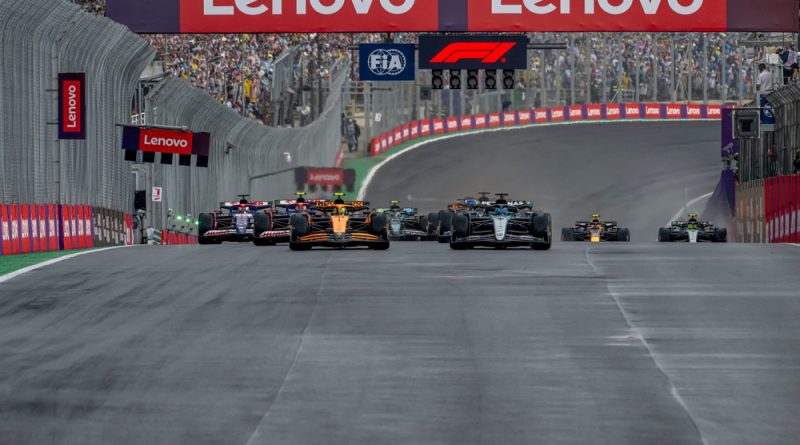Formula 1 is exploring a dramatic shift in its engine regulations, potentially delaying its planned 2026 turbo-hybrid revolution in favor of bringing back high-revving, naturally aspirated V10 engines running on sustainable fuel.
The sport had been set to transition from the current turbo-hybrid era to a more electrified version of the V6 power units in 2026. However, concerns over the ambitious nature of the new regulations have sparked serious discussions about alternative plans.
One major concern is that some cars may be forced to slow dramatically to regenerate power, potentially leading to dangerous speed differentials and an increased risk of crashes. Additionally, there are worries that the on-track spectacle could suffer, as drivers would need to manage energy rather than push flat-out.
The ‘Green’ V10 Proposal
A potential solution being considered is the introduction of normally aspirated V10 engines powered entirely by sustainable fuel. While a return to high-revving engines was previously thought to be years away, a contingency plan has reportedly been gaining traction behind the scenes. One proposal would delay the introduction of the 2026 regulations by two years, pushing the switch to V10s to 2028 instead.
A working group dedicated to exploring the V10 concept has already been formed, suggesting the idea is being taken seriously. However, not all manufacturers are on board with delaying the 2026 engine plans.
Divided Opinions Among Teams
Red Bull and Ferrari are among the teams supporting the V10 initiative, while Mercedes, Honda, and Audi are firmly against delaying the 2026 power unit overhaul. An unnamed insider revealed that some of the manufacturers most keen on the switch are those struggling to keep up with 2026 engine development.
Mercedes team boss Toto Wolff, opposing the potential delay, argued, “We simply don’t have enough current engines.”
As a compromise, an alternative proposal has been floated—allowing the 2026 engine regulations to proceed but limiting them to just three years instead of the planned five. This would pave the way for the V10s to arrive sooner rather than later.
With teams and manufacturers divided, Formula 1 faces a crucial decision: stick with the 2026 turbo-hybrid revolution or take a bold step toward a sustainable yet nostalgic return to roaring V10 power.




